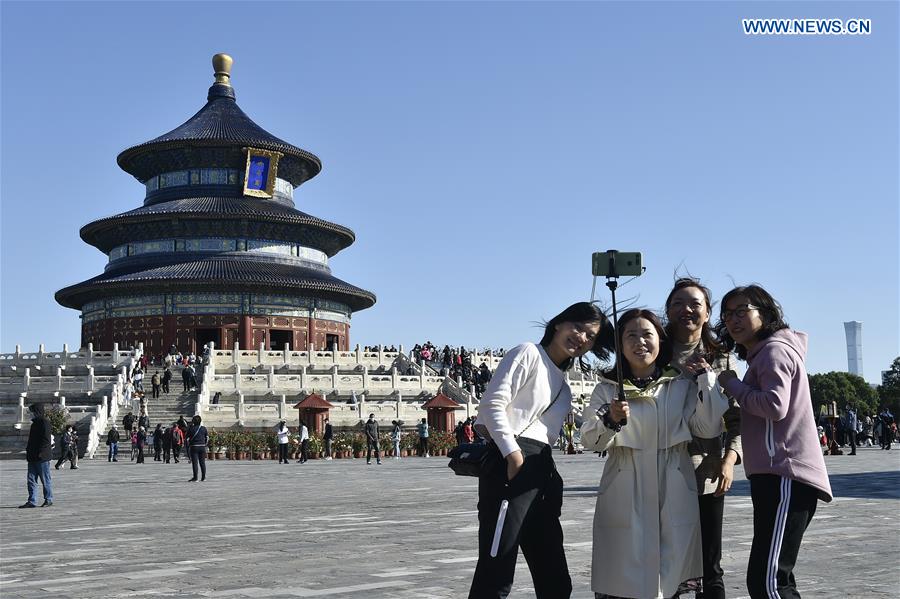National Day holiday showcases benefits of China's effective control measures


I often frown upon the idea of travelling during the National Day holiday. Photos of huge crowds on the Bund in Shanghai, the Great Wall in Beijing and the Yellow Mountain in Anhui province are enough to scare me off.
Yet the feeling this year was totally different since the COVID-19 pandemic has forced many countries to shut down most of the public facilities, including tourist sites, for most of the year.
China was in the spotlight when novel coronavirus cases were reported in Wuhan in late December and a lockdown was imposed in the capital of the Hubei province and other cities on Jan 23, right before the Chinese Lunar New Year Eve, halting the biggest traveling season of the year to prevent the further spread of the virus.
China's whole-of-government and whole-of-society approach and its decisive and strict measures for maintaining social distancing, and tracing, testing, treating, and isolation and quarantine were criticized by many in the West as being excessive and "draconian". But in the final analysis, those measures proved hugely effective to cut off the transmission chains in a country with a population of 1.4 billion.
Nowadays, only a handful of imported cases are reported in China.
The holiday week travelers, estimated at more than half a billion, show China's confidence and success in reopening the economy after a hard-fought victory over the virus. People are still cautious, and on alert, though.
The many travel photos shared by my friends on social media over the past few days are in stark contrast to the situation in Europe, where governments have tightened restrictions due to the increase in daily new cases. As for the United States, it continues to lead the world with more than 7.38 million cases and over 208,000 deaths amid continued politicization of the virus, face masks and vaccines.
I cannot go anywhere given that Brussels, where I am based, is a high-risk red zone on the European Centre for Disease Prevention and Control's coronavirus map. Ten European countries, including all those bordering Belgium, are marked red on the map, meaning they have reported more than 120 confirmed cases per 100,000 residents over the last 14 days.
The European Commission's call for coordinated and unified border control has fallen on deaf ears as visa-free EU and Schengen area member states struggle to protect their own population.
It's not hard to tell that the so-called isolation, contact tracing and quarantine measures recommended by the World Health Organization are either non-existent or loosely enforced in many EU member countries. And some people, especially the youngsters, often flout the basic rules.
The situation in the US is much worse given the recent outbreak of cases in the White House, with US President Donald Trump also infected. Many had hoped that the infection will make Trump realize the true impact and devastating nature of the virus. But he has chosen to more vehemently downplay the virus threat by removing his face mask on White House's Truman Balcony and tweeting, "Don't be afraid of Covid. Don't let it dominate your life". Worse, he has continued to use of the racist "China Virus" to refer to the novel coronavirus.
No wonder Trump's actions prompted Donald Tusk, former European Council president and now president of the European People's Party, the largest in the European Parliament, to tweet: "Don't be afraid of COVID. Be afraid of cynical powerful people spreading lies about it. Don't let them dominate your life."
That social distancing and wearing face masks have become such a divisive and partisan issue in the US is simply beyond belief, especially because many powerful public health and medical institutions have strongly recommended the practices.
Europe and the US could learn a lot from China's strict measures to win their uphill battles against COVID-19, something many Western media outlets, politicians and even medical experts have so far failed to recognize.
The author is chief of China Daily EU Bureau based in Brussels. [email protected]


































